Search
Remove Ads
Advertisement
Summary 
Loading AI-generated summary based on World History Encyclopedia articles ...
Search Results
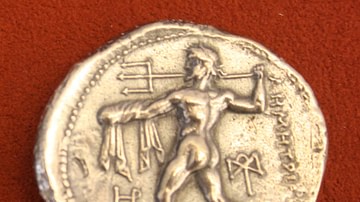
Definition
Poseidon
Poseidon was the Greek god of the sea and rivers, creator of storms and floods, and the bringer of earthquakes and destruction. He was perhaps the most disruptive of all the ancient gods but he was not always a negative force. He was a protector...
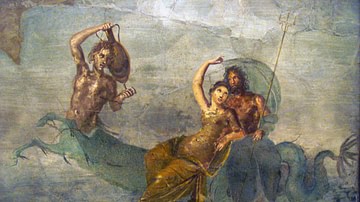
Definition
Amphitrite
In Greek mythology, Amphitrite is a goddess and the feminine personification of the sea. She is the wife of the Greek sea god, Poseidon, and lives with him in a golden palace beneath the sea. As the daughter of Nereus and Doris, she is one...

Video
Poseidon the Ancient Greek God of the Sea and Horses
Poseidon in ancient Greek mythology was the god of the sea, horses, earthquakes and storms, floods and droughts, and was also a protector of mariners. Due to his governance over natural disasters like storms and floods, Poseidon was probably...
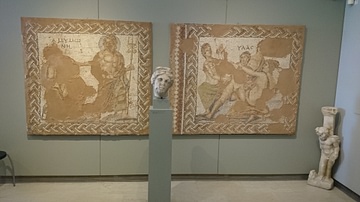
Image
Poseidon Mosaic, Amphipolis
A mosaic from a chapel in the Strymon valley. This is an early Christian mosaic depicting the god Poseidon with a halo. It displays the need for a smooth transition from paganism to Christianity. 3rd Century CE. (Archaeological Museum of...

Image
Poseidon, Silver Tetradrachm of Macedon
Silver tetradrachm from Macedon, 306-283 BCE.
Obverse: Nike
Reverse: Poseidon
Alpha Bank Numismatics Museum, Kerkyra, Corfu.
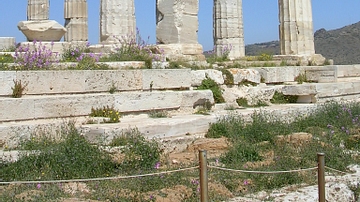
Image
Columns, Sounion Temple of Poseidon
The 5th century BCE Doric temple of Poseidon, Sounion, Greece.
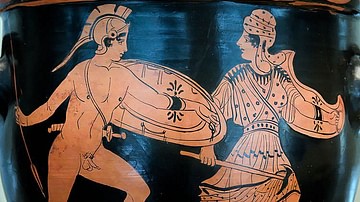
Article
A Visual Who's Who of Greek Mythology
Achilles The hero of the Trojan War, leader of the Myrmidons, slayer of Hector and Greece's greatest warrior, who sadly came unstuck when Paris sent a flying arrow guided by Apollo, which caught him in his only weak spot, his heel. Adonis...

Image
Temple of Poseidon, Sounion, Greece
Temple of Poseidon (444-440 BCE), Sounion, Greece.
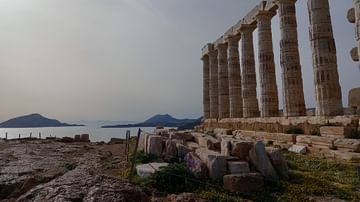
Image
The Temple of Poseidon, Sounion
The temple of Poseidon, relatively well-preserved even today, was constructed in 450-440 BCE. According to modern scholars, it was designed by the same architect who designed the Theseion in Athens' Ancient Agora and the Temple of Nemesis...
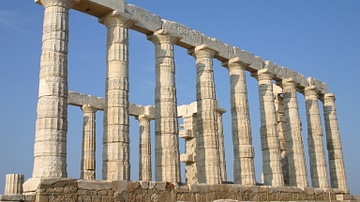
Image
Temple of Poseidon at Sounion
The temple of Poseidon was constructed in approx. 440 B.C., over the ruins of a temple dating from the Archaic Period. It is perched above the sea at a height of almost 70 m. The design of the temple is a typical hexastyle i.e. it had a front...